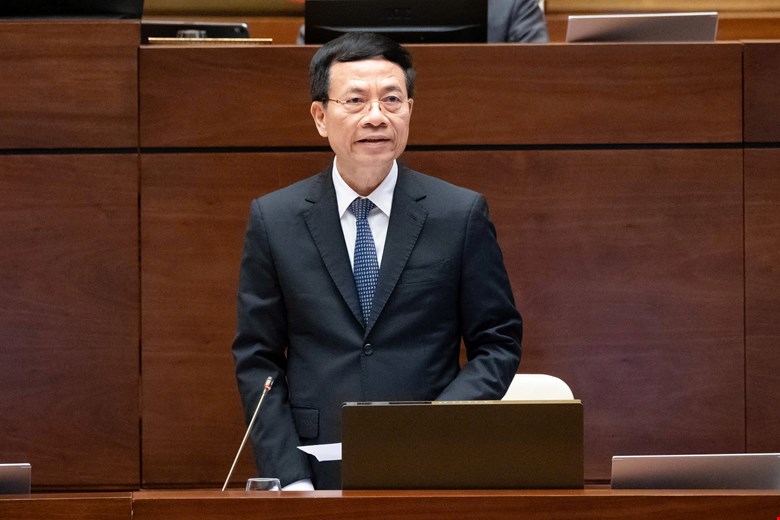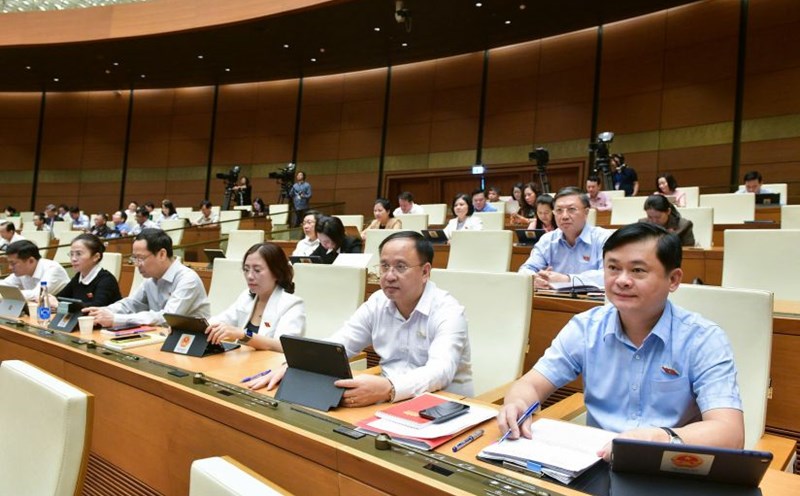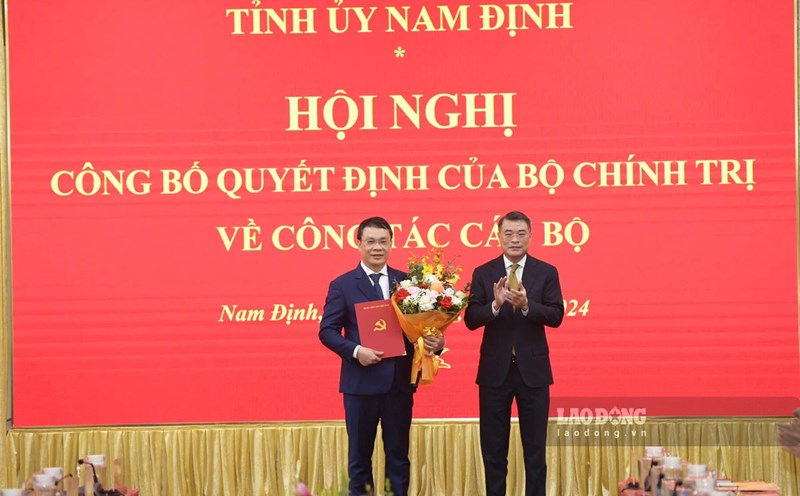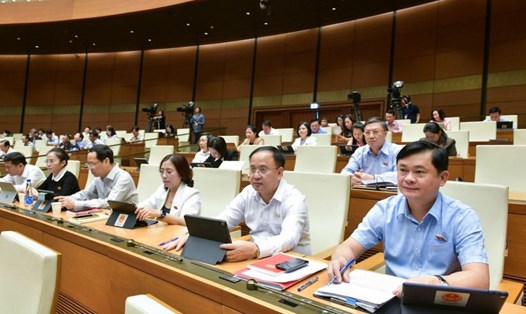On the morning of November 12, Minister of Information and Communications Nguyen Manh Hung continued to answer questions from National Assembly deputies.
Delegate Nguyen Dai Thang (Hung Yen Delegation) requested the Minister of Information and Communications to answer the cause and solution to overcome the situation where some press agencies focus on exploiting the negative aspects of agencies, organizations, and enterprises, showing signs of profiteering.
Regarding this content, Minister Nguyen Manh Hung said that in 2023 and 2024, each year there will be 14-15 reporters and collaborators arrested. People in the profession are very heartbroken, but compared to 21,000 journalists with reporter cards and nearly 42,000 journalists, these are "bad apples spoiling the barrel".
Mr. Nguyen Manh Hung emphasized that 80% of those arrested were from small magazines, magazines of associations, and professional societies. The governing bodies were lax with their press agencies, and the Editor-in-Chief was lax in managing reporters.
The Ministry of Information and Communications has announced the identification criteria, posted them publicly for the whole society to monitor. Along with that, the principles and purposes of 800 press agencies have been made public so that anyone, any locality, any business can look them up to see if the reporter they contact has the right principles and purposes or not to reflect.
According to Minister Nguyen Manh Hung, journalism is very special, the voice and words of journalists directly impact or spread to millions of people. Therefore, the standards are also very special. The upcoming revised Press Law will propose raising standards for reporters.

Regarding the program to support the promotion of the press economy, delegate Ta Thi Yen (Dien Bien delegation) asked, in the context of fierce competition between traditional press and the internet and social networks, in addition to improving quality and promoting the digitalization of press, how should the press economy and press business model be solved?
Minister Nguyen Manh Hung reiterated the view that "Revolutionary press must be nourished by the Revolution". However, in the context of the previous market economy, businesses were forced to advertise and spend a lot of money on advertising, at that time the only advertising medium was the press. Therefore, press agencies also wanted to be autonomous in the market mechanism.
However, when social networks appeared, 80% of online advertising shifted to social networks, but many press agencies were born.
Therefore, in the Government's directive on policy communication, it requires ministries, branches and local authorities at all levels to consider communication as their own work, have an apparatus, plan and annual budget for information work. Since last year, all levels of government and ministries have increased their budget for the press.
In addition, in the upcoming revision of the Press Law, the Minister of Information and Communications said there will be a section on press economics, allowing some large press units to do business in content, around the media field, and to do business to make newspapers.
The Minister also said that if the press follows social networks, it will be left behind. The way for the press to differentiate itself from social networks is to return to core values, using technology to regain the position. Along with that, it is to create conditions for many key press agencies on the basis of assigning the Government to build a specific mechanism for this group.











